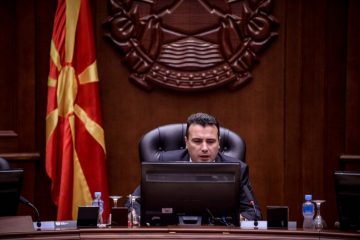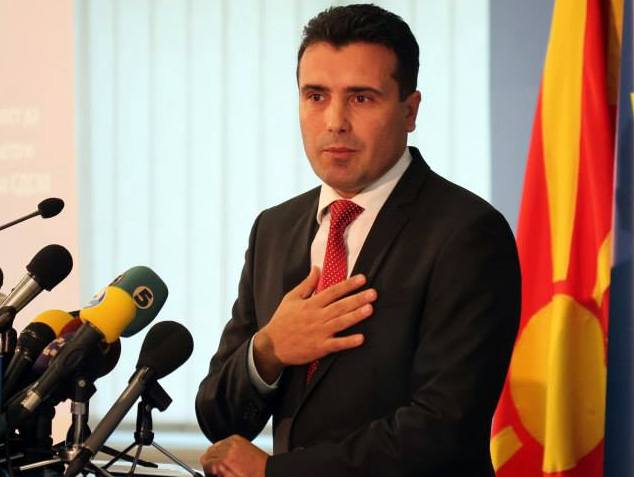Prime Minister Zoran Zaev told the country that the deal he signed with Greece must be ratified in light of the tensions between Kosovo and Serbia, which are discussing a territory swap which many fear could spill over into Macedonia.
Zaev used his press conference on Thursday to warn the public that it is very important to ratify the treaty which he signed with the Greek Prime Minister Alexis Tsipras, under which the name of the Republic of Macedonia will be turned into the Republic of North Macedonia. He cautioned everybody to “study the latest developments between Belgrade and Pristina”, which have put the idea of exchanging territories between them to make both countries more ethnically homogenous. Zaev’s statement was clearly seen as fear mongering and an attempt to scare Macedonians who rejected the name change in a referendum that unless we join NATO soon, we would face pressure and secessionism from Kosovo and Albania aimed toward the majority Albanian parts of Macedonia.
What we’re doing is to ensure lasting peace and stability. Macedonians should analyse for a while, if you will, what is happening between the two neighbouring countries to the north, between Belgrade and Pristina. We have to secure Macedonia, said Zaev.
Asked about a recent statement by Albanian Prime Minister Edi Rama that there is no more border between Kosovo and Albania, which was widely understood as a declaration of Albanian unification in the region, Zaev insisted that it is a comment made in the European spirit.
I would immediately open all borders, as if we are in the EU and we are exchanging trust between us. The process must continue and we will trust Albanian and Serbian institutions in our sharing of entry documents, Zaev said, describing the process of the abolishment of borders in the region as a technical matter, only minutes after he warned the public on the danger of the Albanian and Serbian moves to make their countries more ethnically homogenous.

Zaev was asked by the press about whether his move to provide amnesty to members of Parliament which were previously charged and blackmailed by his Government is undermining the rule of law in the country. He insisted that the changes in the Criminal Code, which is watering down provisions against abuse of office, will not be used to release members of Parliament or their associates and relatives, and that this change which was sped through Parliament is not another amnesty. For the actual amnesty law, Zaev insisted that he has achieved reconciliation with the neighboring countries, and that it is now time to do so with the opposition members his Government has prosecuted, after some of them agreed to vote for the name change of the country.





Comments are closed for this post.